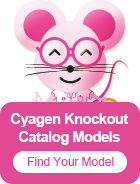

For chimeric antigen receptor (CAR)-T cell therapy, the CAR molecule is the key to the effectiveness of the treatment. CAR molecules usually include extracellular structures such as single-chain variable regions and hinge regions of antibodies that recognize tumor antigens, transmembrane regions, and intracellular structures such as costimulatory signals and CD3ζ signal transduction regions. The design of CAR will influence the killing effect, in vivo persistence, and cytotoxicity of CAR-T cells. Therefore, for different tumor treatment targets, researchers need to design reasonable and effective CAR molecules and package them into CAR viruses for the subsequent construction of CAR-T cells.
Our Viral Vector Generation Service
We provide a variety of CAR molecular design services, including second-generation, third-generation, and fourth-generation CAR design services, as well as personalized CAR molecular design services based on different cellular immunotherapies.
We also provide packaging services.
|
Type |
Cell number |
Titer |
Turnaround |
|
|
Lentivirus (LV)
|
CAR Lentivirus |
≥×108 TU |
≥1×108 TU/mL |
5-8 weeks |
|
Conventional overexpression lentivirus |
≥×108 TU |
≥1×108 TU/mL |
||
|
Conventional interference lentivirus |
≥×108 TU |
≥1×108 TU/mL |
||
|
Conventional knockout lentivirus |
≥×108 TU |
≥1×108 TU/mL |
||
|
Purified Lentivirus |
≥×109 TU |
≥1×109 TU/mL |
||
Advantages
Case 1. Lentiviral Titer via Flow Cytometry - CD19 Antigen
The lentiviral purification solution expressing CD19 antigen was diluted in four gradients (0.01, 0.1, 1, 10 μL) and added to the same number of 293T cells separately. After 72 hours, the positive rate of 293T cells was detected by flow cytometry. The percentage of virus-infected 293T cells to the total number of cells), and then calculate the transduction titer of the lentivirus according to the following formula:

A: The percentage of positive cells in the 0.1 μl group. B: The percentage of positive cells in the 0.01 μl group. N: Number of cells when virus is added V: Volume of virus added in group A

图1. CD19抗原慢病毒滴度检测结果
The number of CD19 antigen-positive cells gradually increases with the increase of the transfection virus gradient, indicating that the lentivirus has infectious activity. The calculated virus titer is 1.4×108 TU/mL.
Case 2. Lentiviral Titer via Flow Cytometry - FMC63 CAR
The FMC63 CAR lentivirus titer was detected by the same method as in Case 1. After calculation, the virus titer is about 4.33×108 TU/mL.

Case 3. Images of Lentivirus-Infected Cells






Figure 3. The effects of lentivirus infection on various cells
Inquiries and Quote Requests
Request a quote now. Alternatively, you can always email service-apac@cyagen.com or call 86 20-31601779 to inquire about our services or obtain a quote for your project.
Related Posts:
>>Cell Therapy Research Solutions
>>Cell & Animal Models for Immune-Oncology and CAR-T Cell Therapy